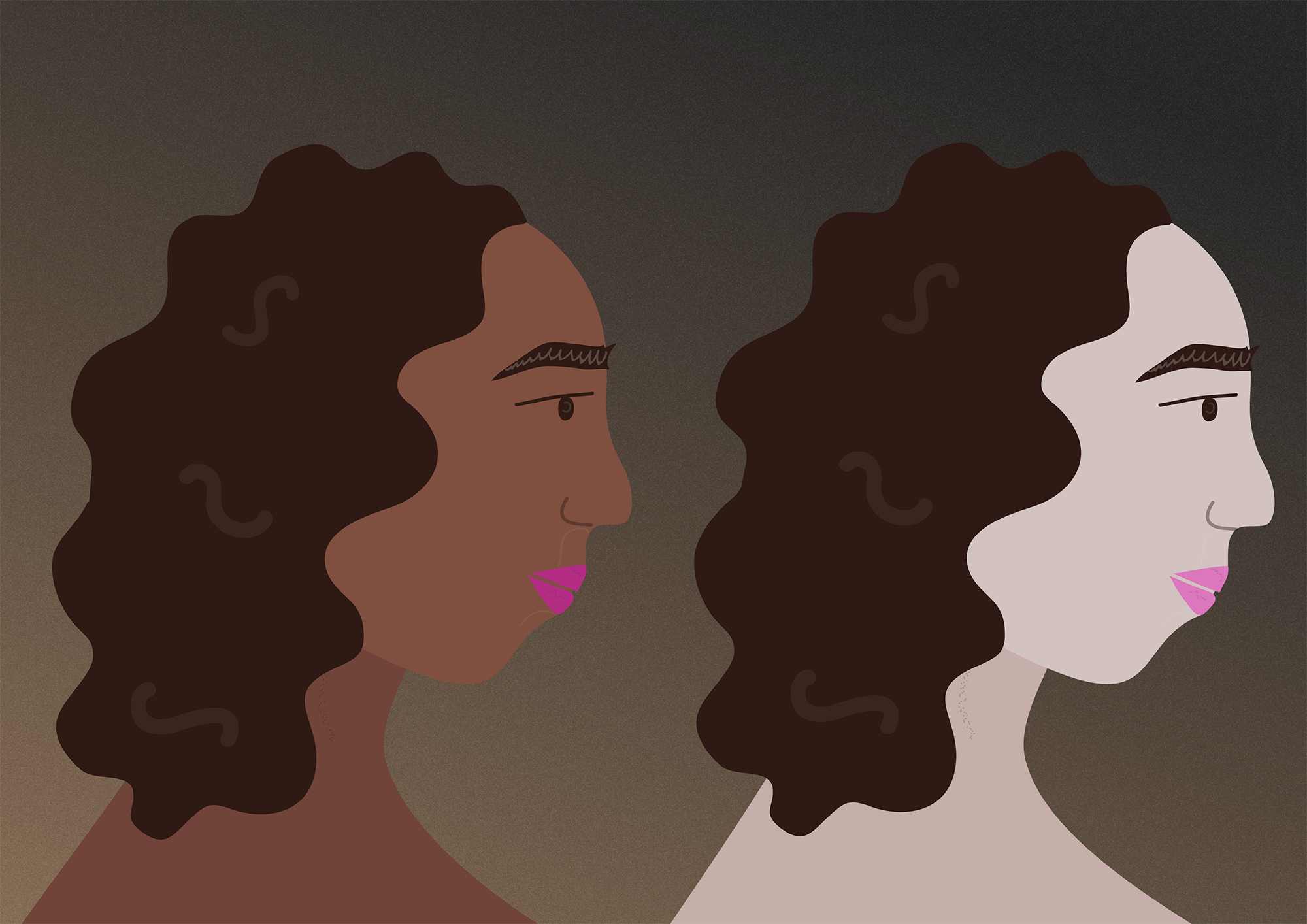For as long as there have been beauty standards, there have been products that cater to them. The pursuit of perfection is never-ending, with the global cosmetic products market being worth a reported $532.43 billion in 2017. However, the opportunity for exploitation will always closely follow the opportunity for profit. Among people of colour, the popularity of skin-lightening creams has soared, with the World Health Organization finding that 77% of Nigerian women, 61% of Indian women, and 40% of Chinese women regularly use skin lightening creams. Such staggering figures beg the question: why are skin lightening products so popular, and what does this tell us about attitudes towards darker skin tones?
The motive behind using skin lightening products is to reach a perceived standard of beauty which is withheld from people of colour: having fair skin. Companies, relentless in their bids to extract profit from their clientele, have clearly forged a captive audience. The global skin lightening industry amassed a total worth of £3.4 billion in 2017.
To what do the companies owe their success? The stark lack of representation of people of colour in culture is the first clue: In the Miss Universe beauty pageants, there have only ever been five Black winners out of 66; in 90 years of the Oscars awards, only one Black actress has won Best Actress; in 2018’s London Fashion Week, 65.4% of shows did not represent people of colour. Popular culture is dominated by a homogeneous representation of what is deemed to be beautiful and successful, and it excludes people of colour.
“It is, however, impossible to deny the legacy of colonialism throbbing at the heart of the skin lightening issue. In the colonial era, white skin represented affluence, superior civility, and the ultimate ideal.”
It is, however, impossible to deny the legacy of colonialism throbbing at the heart of the skin lightening issue. In the colonial era, white skin represented affluence, superior civility, and the ultimate ideal. Such an ideology was ingrained in the colonies by white imperialists. The reclamation of the colonies by those to whom they belong may have come and gone, but it seems the attitudes of the colonizer remain as current and thriving as they were in the colonial era.
The foundations of the skin lightening industry make the fact that many women put themselves in danger to lighten their skin even more horrifying. Use of products containing hydroquinone, a skin bleaching chemical, is illegal in the UK unless prescribed by a doctor. Under careful supervision, such lightening creams can be a harmless treatment for hyperpigmentation.
The clandestine nature of buying skin lightening creams does not, unfortunately, make their use any less widespread. Illegal skin lightening creams containing harmful levels of hydroquinone, steroids, and mercury are readily available on the high street, with many women using them because they are unaware of the health risks that come with the product. The misuse of products containing hydroquinone and mercury can lead to liver, nerve, and fetal damage, while their prolonged use dramatically increases the risk of skin cancer due to their effect on the production of melanin, the pigment that protects the skin from UV rays. Ultimately, the use of illegal skin lightening products can lead to hospitalization for extreme scarring and chemical burns, which, if left untreated, could be life-threatening.
Why are skin lightening products so easily available, then, despite their illegality? Trading Standards seize illegal skin lightening creams and prosecute those selling them. The fines which are the result of the court proceedings are, however, a cry into the void, with most sellers continuing to distribute the contraband skin lightening creams even after being prosecuted for it. Lack of data on the true breadth of the black market’s supply and lack of resources from Trading Standards make the wildfire of skin lightening products hard to extinguish. Without enough resources or information, tackling the problem is going to be an uphill struggle for Trading Standards; the skin lightening cream epidemic needs to be a higher priority, receiving more funding and research.
However, the real crux of the matter is the attitudes of the people buying the products. The exclusivity of beauty needs to be combatted with a better education for those likely to fall victim to its demands. All complexions must be included in the definition of beauty because the best way to defeat an industry is to cut off its demand.
Georgie Wardall
(Image Credited to Metro)

